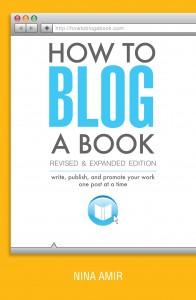 Many people blog for one reason: to build expert status. Sharing your knowledge and experience on your blog and social networks provides an ideal way to become an authority. However, sometimes your blog content is not enough.
Many people blog for one reason: to build expert status. Sharing your knowledge and experience on your blog and social networks provides an ideal way to become an authority. However, sometimes your blog content is not enough.
Maybe you only blog once per week. Therefore, you only have one post per week to share on social media sites.
That’s not enough to fill you social media queue and keep you front and center in your target market’s field of vision.
And we all know social media sites are cluttered. It’s hard to get noticed in the constant stream of content.
How do you continue sharing what you know even when you have no new content of your own?
You share other experts’ content.
What is Curated Content?
Curated content is content from other experts that you share. As a curator, you pull together, sift through or select web content to share with your audience—content you feel is relevant to their needs and interests.
Think of yourself like an art curator. The curator at an art museum gathers together great pieces of art. Then art lovers come to the museum to see the collection. If the curator is good at his job, then the museum becomes the favorite stop for those seeking great pieces.
Some bloggers are afraid to curate content. There’s no need. Content curation does not promote your competition over you. In fact, you shouldn’t see other experts in your field as competition. They are colleagues and could become superb promotional partners.
See your competition’s content as a way to increase your influence with your ideal readers, customers and clients. The more content you curate, the stronger your authority becomes.
9 Reasons to Curate Content
Let’s look at nine ways curating content helps you enhance your expert status.
- Each time you share a someone else’s authoritative content on your social networks, you prove that you have your finger on the pulse of what is happening in your industry or subject area. You say, “Hey! I’m a trusted source of information on this topic.”
- Sharing other experts’ information also shows that you are a giving person. This goes a long way with those experts, who might reach out to you in return and begin sharing your content.
- Your expert status will be enhanced by the simple fact that you read the latest information on your topic from the leading experts. You’re in the know. You are knowledgeable.
- You become the go-to person for information. You social media stream becomes the hub for your industry’s news.
- A constant stream of content puts you in front of your people on a regular basis.
- Sharing other people’s content gives you the opportunity to call them out—to tag them—so they take notice of you. As you develop relationships with other experts, your authority grows by association.
- The more you share on social networks, the more opportunity you provide for people to visit your website. If they click through to your profile or a link to your site, you gain the chance to keep them coming back.
- A constant stream of content in your feeds keeps readers following you. When the stream is empty or redundant, readers go elsewhere to find what they need…from another expert.
- Curating content gives you ideas for blog posts. While you can’t copy other people’s posts, you can link to them or feature a sentence or two (with attribution and link to the original post).
7 Content Curation Tools to Try
It’s possible to curate content by doing a Google search on a topic. However, this can be time consuming, and not everything shows up on Google. So you might miss great content if you use this strategy.
You can find many content curation tools. Just do a Google search, and you’ll find numerous lists of the “best” ones on the market.
Here is a list of content curation four tools I have used and recommend.
Scoop.It
With this took you can curate content and connect with others who are also creating content in your niche.
Triberr
Triberr gives you the opportunity to connect with bloggers who write about the same topic. The reciprocal share rule in most tribes means your content gets shared as well.
This tool allows you to set up columns for the experts you want to follow. You can then find their content easily by scanning their feed and share it directly to Twitter.
Pinterest
Yes, this is a social media site, but you can follow other experts there and watch the boards they create on your subject area. Then repin or share elsewhere.
Here are three more tools about which I’ve heard good things that you could try:
Curata
A tool for busy people, it searches for blog posts in your niche. You sort through the content and curate what you feel is worth sharing.
Content Gems
Access to 200,000+ RSS feeds. Use keywords to search the content and then choose what you feel is appropriate to share.
SlideShare
Search by keyword for content on your topic to find slide presentations from other authorities. Offers a different type of content to your readers.
Give content curation a try. Let me know if it increases your expert status—and readership.
Do you have a preferred content curation tool to share?
 Tools for blogging and blogging books!
Tools for blogging and blogging books!
Check out my three best resources:
- How to Blog a Book Revised & Expanded Ed.
- Blog a Book Template Kit
- How to Turn Your Blog Into a Book Production Machine
Need 1-0n-1 support? Click here.
Photo copyright: rawpixel / 123RF Stock Photo

[…] Lucas Jansen read fullvia […]